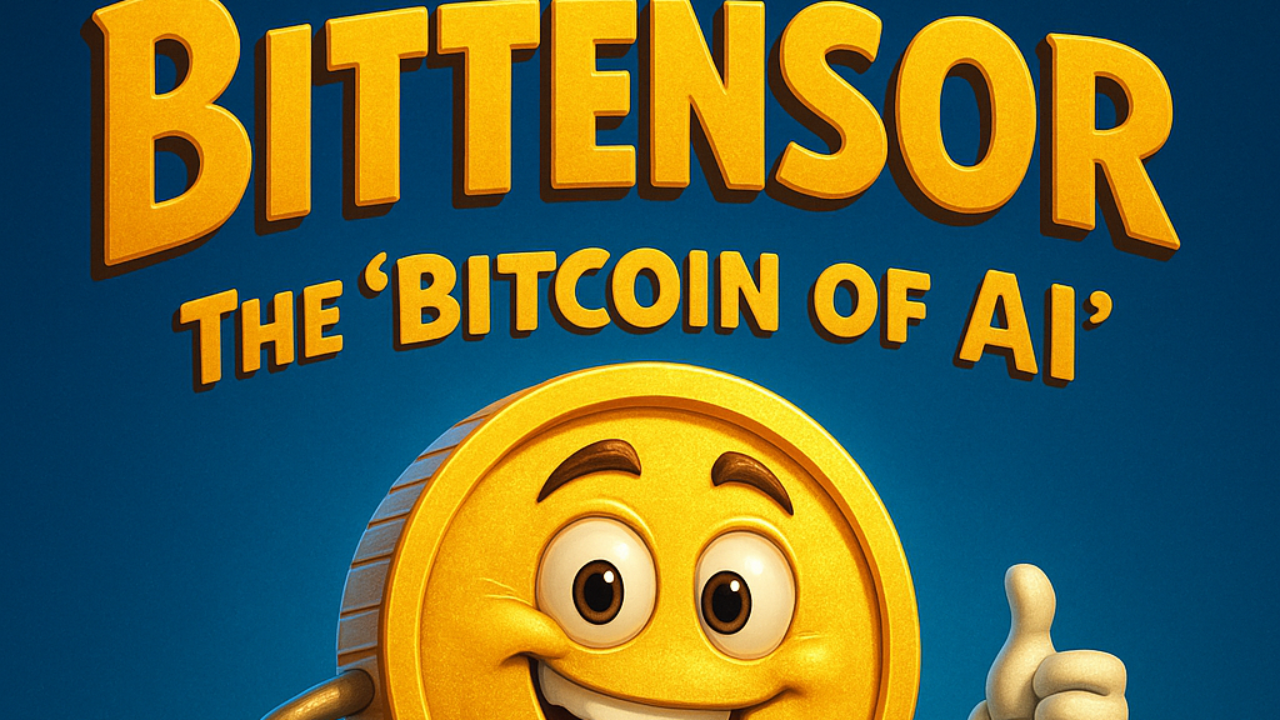Bittensor: The Bitcoin of AI?
Jun 09, 2025
Picture this: You're at a dinner party, and someone confidently declares that "Bittensor will be the Bitcoin of AI." Half the table nods emphatically (though they've clearly never heard of it), while the other half exchanges that particular British look—you know, the one that says "well, we'll see about that, won't we?"
This is crypto in 2025: bold claims flying about like confetti at a village fête, whilst most of us are just trying to figure out if any of it actually makes sense. Today, we're diving into three stories that perfectly capture where we are in this peculiar moment—from AI tokens with messianic complexes to traders losing millions in ways that would make a Victorian morality tale blush.
Buckle up. It's going to be a delightfully bumpy ride.
Bittensor: The "Bitcoin of AI" (Apparently)
Bold claim alert: One project thinks it's destined to rule the AI-crypto kingdom.
Calling something "the Bitcoin of AI" is a bit like calling your local pub "the Wimbledon of drinking establishments"—technically possible, but requiring some serious evidence. Yet Bittensor (TAO) has been gathering a rather devoted following who genuinely believe this comparison holds water.
Here's what makes it interesting: while most AI tokens are basically regular cryptocurrencies wearing a lab coat and hoping nobody notices, Bittensor runs a decentralized network where AI models compete for rewards. Think of it as a digital colosseum where algorithms battle for supremacy, except instead of gladiators, you've got various computers trying to prove they're the cleverest.

The project has introduced something called "Dynamic TAO"—which sounds impressively technical but essentially means the network can adapt its reward system based on performance. It's a bit like having a pub quiz where the questions get harder if you're doing too well, keeping everyone on their toes.
So what? Well, if Bittensor succeeds, it could become the infrastructure layer for decentralized AI—which would indeed make it quite valuable. If it fails, well, at least the marketing was memorable.
📈 The Fed's Stubborn Streak (And Why It Might Not Matter)
Plot twist: The Federal Reserve's refusal to cut rates might become irrelevant thanks to some Treasury Department wizardry.
Here's a delicious bit of financial irony: whil everyone's watching the Fed like hawks circling a particularly interesting roadkill, the real action might be happening elsewhere entirely. The Treasury Department is quietly preparing to remove something called the Supplementary Leverage Ratio—which sounds about as exciting as watching paint dry but could flood the market with liquidity faster than you can say "quantitative easing."
Think of it this way: if the Fed is the celebrity chef everyone's watching, the Treasury is the sous chef actually getting the meal ready. By allowing banks to buy more government bonds without holding extra capital, they're essentially creating money without calling it money creation. Rather clever, really.
Meanwhile, stablecoin regulations are also moving through Congress faster than expected. Since stablecoins are backed by US government bonds, new regulations could create even more demand for Treasury securities. It's like a financial feedback loop designed by someone who really, really wants bond prices to go up.
The upshot? We might get the liquidity injection that typically boosts crypto prices, regardless of what the Fed decides to do about interest rates.
💸 The $30 Million Oops (And Why Dark Pools Matter)
One trader's spectacular losses have sparked a conversation about privacy in crypto trading—and it's more important than you might think.
Meet James Wynn, a trader who managed to lose roughly $30 million in what can only be described as the most expensive game of financial whack-a-mole ever played. Every time he went long, the market crashed to his liquidation price. Every time he went short, it pumped. It was so consistent it bordered on performance art.
Wynn blamed "cabal traders" hunting his positions—which sounds properly conspiratorial until you realize that crypto trading is about as private as a town crier's announcement. Every major trade is visible on-chain, making large traders sitting ducks for coordinated attacks.
This has sparked serious discussion about bringing "dark pools" to crypto. In traditional finance, these private trading venues handle roughly 50% of US stock trading volume, allowing institutions to trade without telegraphing their moves. It's like being able to bid at an auction without everyone seeing your paddle.
The technical challenge is significant:
- Encrypting orders on blockchain is computationally expensive
- Matching trades privately whilst maintaining decentralization is complex
- Regulatory compliance adds another layer of complexity
Why this matters: As institutional money pours into crypto, the lack of private trading venues becomes a bigger problem. Several projects (Silhouette, Renegade, Hibachi) are racing to build the first proper crypto dark pools.
The Bottom Line
Here we are in 2025, watching AI tokens make grandiose claims while the Fed plays hard to get, and traders lose fortunes because crypto trading has all the privacy of a goldfish bowl. It's rather like watching a particularly chaotic episode of a reality TV show—you're not entirely sure what's happening, but you can't look away.
The interesting bit? These seemingly unrelated stories all point to crypto's ongoing maturation. When projects start comparing themselves to Bitcoin, when Treasury policy becomes as important as Fed policy, and when traders demand institutional-grade privacy tools, you're witnessing an asset class growing up.
Will Bittensor become the Bitcoin of AI? Will dark pools solve crypto's privacy problem? Will the Treasury's bond-buying schemes actually boost prices?
Time will tell, as it always does. But at least the journey promises to be thoroughly entertaining.
Get the latest news, tips, and updates!
Enter your info below to get helpful updates about how to make money from crypto.
We hate SPAM. We will never sell your information, for any reason.

